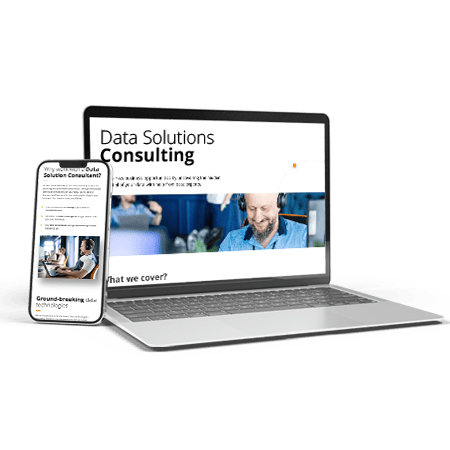
AI in team productivity: the future is now
Artificial intelligence (AI) is redefining the global business landscape, introducing unprecedented efficiencies, and transforming industries' operations.
According to a PwC report, AI could contribute a staggering $15.7 trillion to the global economy by 2030, with the lion’s share of $6.6 trillion potentially benefiting the business sector.
This shift towards AI-driven productivity is not merely about automating routine tasks; it’s about fostering innovation, enhancing decision-making and enabling businesses to adapt more dynamically to changing market demands.
In this transformative context, Future Processing convened a webinar to explore the intricate relationship between AI and team productivity.
Moderated by Anna Mleczko, Relationship Manager at Future Processing, the session featured insights from Alison Connelly-Flores, PA-C, MPAS, Chief Medical Information Officer at Urban Health Plan, Inc., Karolis Matulis, CPA, CITP, CVA, Manager at WilkinGuttenplan and chair of the firm’s Innovation Council, and Arek Skuza, US Strategy Director and Principal AI Strategist at Future Processing.
This article focuses on the key takeaways and insights gained from our roundtable discussion with experts who, drawing upon their diverse experiences, provide a holistic view of AI’s impact across different sectors, setting the stage for a deeper investigation into AI’s capabilities, challenges and future opportunities.
Insights into current AI experiments & where AI has added significant value to your industry
In healthcare, Alison Connelly-Flores detailed Urban Health Plan’s adoption of AI to revolutionise patient care.
By implementing AI to predict patient no-shows and assist in diagnostics, they’ve not only improved operational efficiency but also enhanced patient outcomes.
High no-show rates are problematic as they reduce access to appointments for other patients who need to be seen by a professional but are unable to do so. Previously, this problem was tackled through ‘overbooking’ patients to try to maximise the number of people seen.
However, the problem is such that when high numbers of people do show up for their appointments, it might not be possible to get around to seeing all of them. The strategic use of AI to predict inconsistency in high-risk ‘no-show’ patients has proven extremely successful and has significantly enhanced the operational efficiency of Urban Health Plan’s operations.
Karolis Matulis spoke of WilkinGuttenplan’s journey with AI, emphasising its role in streamlining complex financial transactions and elevating client consultancy services.
By integrating AI, the firm has not only enhanced its analytical capabilities but also significantly improved the accuracy and efficiency of its services. This transformation underscores AI’s potential to refine and redefine the financial sector’s operational methodologies.
Arek Skuza detailed Future Processing’s approach to utilising AI in crafting sustainable solutions involved in tackling complex challenges through AI-driven strategies.
In this manner, the company addresses current needs such as creating smart chatbots that help the user interact and find a suitable solution and AI-automated NDA checking tools that compile huge amounts of data in the agreements to extract the most important aspects, ensuring they are aligned with policies or requirements.
All of these insights reveal the broader implications of AI beyond immediate business benefits, highlighting its role in driving long-term sustainability and economic growth.
Instances of AI not delivering results and the key learnings gained
The path to AI integration is fraught with both successes and challenges.
Alison Connelly-Flores candidly discussed the hurdles in embedding AI within healthcare workflows, emphasising the critical need for a harmonious human-AI interface.
Karolis Matulis highlighted the limitations of AI in understanding complex legal and tax frameworks, a reminder of the technology’s current boundaries and the importance of foundational knowledge.
Likening generative AI at this current stage to that of an ‘intern’, AI can come up with a solution, but it might not be the full polished result that we would have hoped for.
Humans are still far more advanced in their ability to understand and work with complex tax codes and legal frameworks, meaning that AI is currently not a realistic ‘threat’ when it comes to replacing human workers. This insight sheds light on the necessity for ongoing development and refinement in AI technologies to meet the nuanced demands of various industries.
Arek Skuza pointed out the significance of ethical leadership and continuous monitoring in the deployment of AI through two insightful examples.
Firstly, a DPD chatbot incident where a flawed upgrade led to the bot criticising the company, highlighting the necessity for ongoing monitoring and improvement in AI systems; secondly, a research project at the University of Texas at Dallas involving AI models filling out tax deduction forms, which demonstrated the need for human oversight as even advanced models like GPT-4 still made errors.
These incidents teach us that AI provides predictions rather than precise outcomes, and caution against relying solely on AI-generated content due to potential inaccuracies.
Despite these challenges, there are undoubtedly abundant opportunities for businesses to optimise AI systems with talent, effort and ongoing development.
Success stories of AI increasing efficiency and team productivity
As well as using AI to predict ‘no-shows’ in the healthcare sector, Alison Connelly-Flores highlighted the adoption of AI for diagnostic assistance, such as in dermatology and diabetic retinopathy screening.
These AI tools help clinicians diagnose conditions more accurately and swiftly, leading to better patient outcomes and more efficient use of healthcare resources.
Karolis Matulis was able to expand on these AI benefits when it came to financial solutions by explaining the use of AI in analysing vast amounts of financial data to identify trends, anomalies and opportunities for tax optimisation.
This not only streamlines the audit process but also provides clients with strategic insights that can lead to substantial financial savings.
Additionally, Matulis discussed the firm’s exploration of AI-driven automation in routine accounting tasks, which frees up the company’s professionals to focus on higher-value advisory roles, thereby enhancing client service and satisfaction.
Lastly, Arek Skuza of Future Processing explained the development of AI-based tools that assist in energy management and optimisation for businesses, contributing to more sustainable operational practices.
In addition, he explained that another area where Future Processing is making strides with AI is in project management, where AI algorithms are used to predict project timelines, identify potential bottlenecks and optimise resource allocation.
Predictions for the development of AI in 2024
Alison Connelly-Flores envisions AI further enhancing the healthcare sector by improving the provider-patient relationship through ambient listening technologies, which streamline documentation during healthcare interactions, freeing up more quality time for patient care and strengthening relationships.
This advancement aims to facilitate more human-centric care, allowing healthcare professionals to focus more on patient interaction rather than administrative tasks.
Additionally, she sees the potential of predictive analytics in identifying patients at high risk for developing diseases like kidney disease or diabetes, enabling timely interventions to prevent the progression to more serious health issues.
In 2024, Karolis Matulis is looking forward to the development of specialised AI tools tailored specifically for the financial sector.
He predicts these tools will possess the nuanced understanding needed to navigate the complexities of tax codes and financial regulations, thereby enhancing precision in financial transactions and advisory services.
This specialisation is expected to significantly improve the sector’s operational efficiency and decision-making processes.
Arek Skuza highlighted the significant progress made in AI over the past year, stressing its potential to accelerate advancements across industries. He anticipates challenges in data democratisation and suggests leveraging unique, specialised data to enhance model performance.
This shift may lead to a greater focus on private and public institutions, necessitating the use of machine learning and AI to connect and train on various data sources. Skuza envisions a transition from generalist AI models to specialised tools tailored to specific industries or issues, improving precision and applicability.
He foresees AI’s predictive analytics becoming integral to strategic decision-making, emphasising the importance of ethical stewardship in guiding AI’s evolution. Skuza envisions seamless integration of AI in day-to-day operations, where its capabilities in forecasting and optimisation can drive innovation, sustainability and economic growth.
List of tools to enhance your team productivity with AI
Arek Skuza listed some AI tools to support everyday work in various sectors and departments:
- Supernormal – takes notes during your meeting and formats them automatically, for all different use cases, using secure AI.
- Rewatch – combines an AI-powered notetaker, screen recorder, and collaborative video hub.
- Gemini Google – gives you direct access to Google AI, providing help with writing, planning, learning, and more.
- Alphamoon – an intelligent document platform to simplify document processing.
- Chat PDF – an AI-powered app that works like Chat GPT, but answering your questions about uploaded PDFs.
- Beautiful.AI – generative AI presentation software.
- Notion – a comprehensive tool with building blocks to make your version of the app adjusted to your needs.
- Monday – a work platform with customisable products.
- Trello – boards, lists, and cards to get a clear view of the team’s responsibilities and priorities.
- Camunda – a platform to design, automate, and improve processes across organisations.
- Perplexity.AI – an AI assistant designed to provide accurate and high-quality information, assist with various tasks, and engage in meaningful conversations.
- Mural – a secure, flexible, visual work platform purpose-built for collaboration.
- Miro – a digital collaboration platform designed to facilitate remote and distributed team communication and project management.
- Avoma – an AI Meeting Assistant and Conversation Intelligence solution.
- Otter.AI – a GenAI for transcripts, automated summaries, action items, and chat.
- Calendly – a scheduling automation platform.
- Reclaim AI – a calendar app that optimises time for better productivity, collaboration, and work-life balance.
Summary
The insights shared during the webinar paint a vivid picture of AI’s current state, its potential for revolutionising productivity, and the challenges that lie ahead.
Although there are a huge number of incredible uses and advances of AI in all realms of business and team productivity, there are clearly still issues that need to be resolved in time.
2023 provided a huge leap forward in AI capabilities and how industries from across the globe apply it, and as AI continues to evolve, its ability to enhance team productivity and transform business operations offers a glimpse into a future where technology and human ingenuity converge to create a more efficient, sustainable and innovative world.




